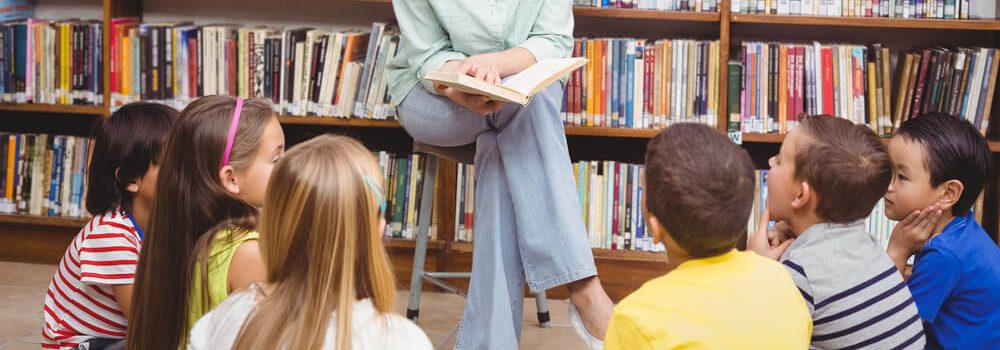Student-centric advice and objective recommendations
Higher education has never been more confusing or expensive. Our goal is to help you navigate the very big decisions related to higher ed with objective information and expert advice. Each piece of content on the site is original, based on extensive research, and reviewed by multiple editors, including a subject matter expert. This ensures that all of our content is up-to-date, useful, accurate, and thorough.
Our reviews and recommendations are based on extensive research, testing, and feedback. We may receive commission from links on our website, but that doesn’t affect our editors’ opinions. Our marketing partners don’t review, approve or endorse our editorial content. It’s accurate to the best of our knowledge when posted. You can find a complete list of our partners here.
What is a Parochial School?
 By
Cece Gilmore
By
Cece Gilmore 
Cece Gilmore is a Content Writer at Scholarships360. Cece earned her undergraduate degree in Journalism and Mass Communications from Arizona State University. While at ASU, she was the education editor as well as a published staff reporter at Downtown Devil. Cece was also the co-host of her own radio show on Blaze Radio ASU.
Full BioLearn about our editorial policies

Cari Schultz is an Educational Review Board Advisor at Scholarships360, where she reviews content featured on the site. For over 20 years, Cari has worked in college admissions (Baldwin Wallace University, The Ohio State University, University of Kentucky) and as a college counselor (Columbus School for Girls).
Full BioLearn about our editorial policies

Maria Geiger is Director of Content at Scholarships360. She is a former online educational technology instructor and adjunct writing instructor. In addition to education reform, Maria’s interests include viewpoint diversity, blended/flipped learning, digital communication, and integrating media/web tools into the curriculum to better facilitate student engagement. Maria earned both a B.A. and an M.A. in English Literature from Monmouth University, an M. Ed. in Education from Monmouth University, and a Virtual Online Teaching Certificate (VOLT) from the University of Pennsylvania.
Full BioLearn about our editorial policies

There are many different options when it comes to selecting an elementary, middle, or high school. One of these options is parochial school. What exactly is a parochial school? Some people think of parochial schools as mainly Catholic, while others believe that parochial schools is just another name for private schools. Learn exactly what parochial schools are in our guide!
Related: Top middle school scholarships
What is a parochial school?
A parochial school is a type of private school that is directly affiliated with a religious entity or place of worship. Parochial schools can be associated with any religion, including Roman Catholic parishes, Jewish synagogues/organizations, Islamic mosques, Protestant churches, and many more.
Many misconstrue the idea that parochial schools are only for the Christian religion. This is because “parochial” is rooted in the word “parish.” Therefore, “parochial school” tends to allude to a reference to a Christian or Catholic organization.
Many Catholic schools are parochial schools, meaning they have an affiliation with a specific Catholic church. However, as we see, parochial schools are not limited only to the Christian or Catholic faith.
Who runs parochial schools?
Parochial schools are owned by the religious place of worship where they are located. Therefore, whoever runs a particular parochial school depends on what the parish or place of worship decides. Sometimes, a religious order operates the school, while other times it is governed by a school board. If you are curious about a particular parochial school’s teaching staff, reach out to them to answer any questions you may have.
Related: What is the SSAT?
Who can attend parochial school?
Every parochial school is slightly different in their requirements for students to attend their school. Some parochial schools may require the following to be eligible for their school:
- The family may need to be a member of the affiliated place of worship
- Certain schools may accept non-members, but they may also require an extra fee for those children to attend their schools
- Entry exams may be required for potential students for acceptance
If you are unsure if you qualify to attend your local parochial school, be sure to check their website or contact them to get more information.
What curriculum is taught at parochial schools?
Parochial schools usually teach a standard curriculum just like any other private or public school. This includes math, science, English, and electives. In addition, parochial schools do typically offer and may even require religious education classes. However, the curriculum does depend on and vary from parochial school to parochial school.
Also see: Charter school vs. public school
Are the academics at parochial schools more rigorous than public schools?
The quality of academics at parochial schools in comparison to public schools depends on the school itself. Some parochial schools rank higher than public schools, while some rank lower. It really just depends on the situational circumstances surrounding the school. Therefore, be sure to do your research on whether the parochial school you are thinking of has high academic standards compared to the public schools near you.
Don’t miss: Top Christian scholarships and top Catholic school scholarships
Questions to ask yourself before enrolling in a parochial school
- Aside from religious classes, what does the parochial school offer that the local school does not?
- To what extent is religion incorporated into the general curriculum?
- How is the effectiveness of the curriculum measured?
- What are the proficiency levels in each grade?
- What extracurricular clubs and activities are offered?
- What is the expectation of families/students regarding out of school commitments such as fundraising?
Frequently asked questions about parochial school
Do parochial schools accept students that follow different faiths?
Do parochial schools allow corporal punishment?
Are all parochial schools Catholic?


